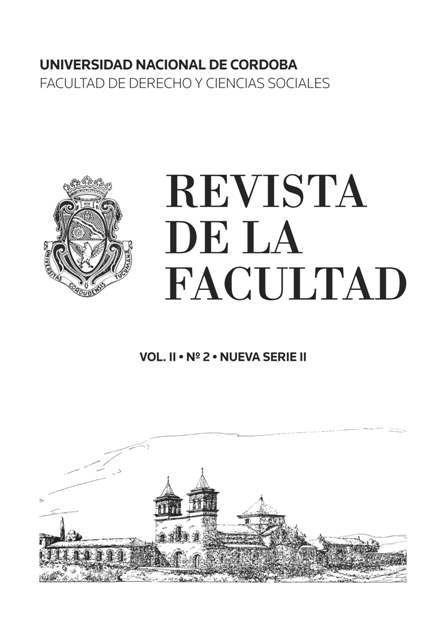Control mechanismus of the ilo commissions of inquiry old cases with value for present and future
Keywords:
International Labour OrganizationAbstract
It should be noted that the system of complaints was only applied in 1961, and that later several Commissions of Inquiry were carried out which, as we shall see, have been constituted in a considerable number, and so we omit to mention them here, such as those carried out in Von Potobsky Geraldo and Héctor Bartolomei de la Cruz, La organización Internacional del Trabajo, Ed Astrea 1990 pp. 115/117. Nationals and Foreigners. Internship and functions carried out in the ILO in different Universities of the city. It should be remembered that despite the importance that the authors of the ILO Constitution had accorded to the complaints procedure, it was practically not used during the first forty years since its creation in 1919. As Valticos teaches, it was used for the first time in the case of the Ghanaian Government's complaint concerning Portugal's application of the Abolition of Forced Labour Convention (No. 105) in its African territories. In 1968 this procedure was used in connection with Conventions 87 and 98 by the military government that had assumed power in Greece. In 1974 for the observance in Chile of the Discrimination (Employment and Occupation) Convention, 1957 (No. 111). Subsequently, the procedure was also applied on several occasions, and finally in 1990, which gave rise to this commentary on the Commission of Inquiry to examine the complaint concerning Nicaragua under the Freedom of Association and Protection of the Right to Organise Convention, 1948 (No. 87); the Right to Organise and Collective Bargaining Convention, 1949 (No. 98); and the Tripartite Consultation (International Labour Standards) Convention, 1976 (No. 144). It is true that the commissions of enquiry that followed one another over time have been very numerous because this procedure, which is larger than the others, is used as the ultima ratio after previous instances have been exhausted (direct contacts, etc.). It is also worth valuing the cost to the ILO of the integration of these commissions, usually jurists from different countries, as well as fees and expenses for travel that often must be reiterated. And in spite of the results obtained, they were very positive and for this reason the system is fully valid to this day. It seems obvious, but it is useful that in order to achieve compliance with legal rules and also morals, it is essential to establish a control over them as a way to ensure compliance. If there is a lack of sufficient control systems or if they produce discrimination or situations of inequality among the addressees, or if they are inefficient, it is not possible to admit that the normative or moral precepts are complied with. Indisputably, the due control is directed to the fulfillment of the juridical or moral norms to avoid the sanctions, that although in the International Labor Law they do not have imperative, the nonobservances of obligations also produce or provoke sanctioning forms. It is unquestionable that without these it would not be possible to speak of coactivity of the law, since the essence of coactivity consists in the possibility of applying a sanction, a possibility that represents a spiritual force, a psychic pressure, a threat that must motivate the fulfillment of the right and that when it is ineffective is put into practice, applying the sanctions to restore the disturbed order. However, moral sanctions often have greater vigour and exemplary transcendence than the imperative of laws. This is precisely the system adopted by the ILO, after exhausting, in the face of a conflict, through persuasion, the understanding to avoid the application of the sanctioning regime. Therefore, it has been considered of interest for the application of the procedure of the same to be carried out in the future.
Downloads
Downloads
Published
How to Cite
Issue
Section
License
La publicación del artículo implica la donación de los derechos de autor a la Facultad de Derecho, conservando el autor su derecho a utilizar el artículo en publicaciones de su autoría o páginas web referidas a su trayectoria. Para el caso de otro tipo de publicaciones, antes de su utilización, deberá obtener autorización de la facultad.


